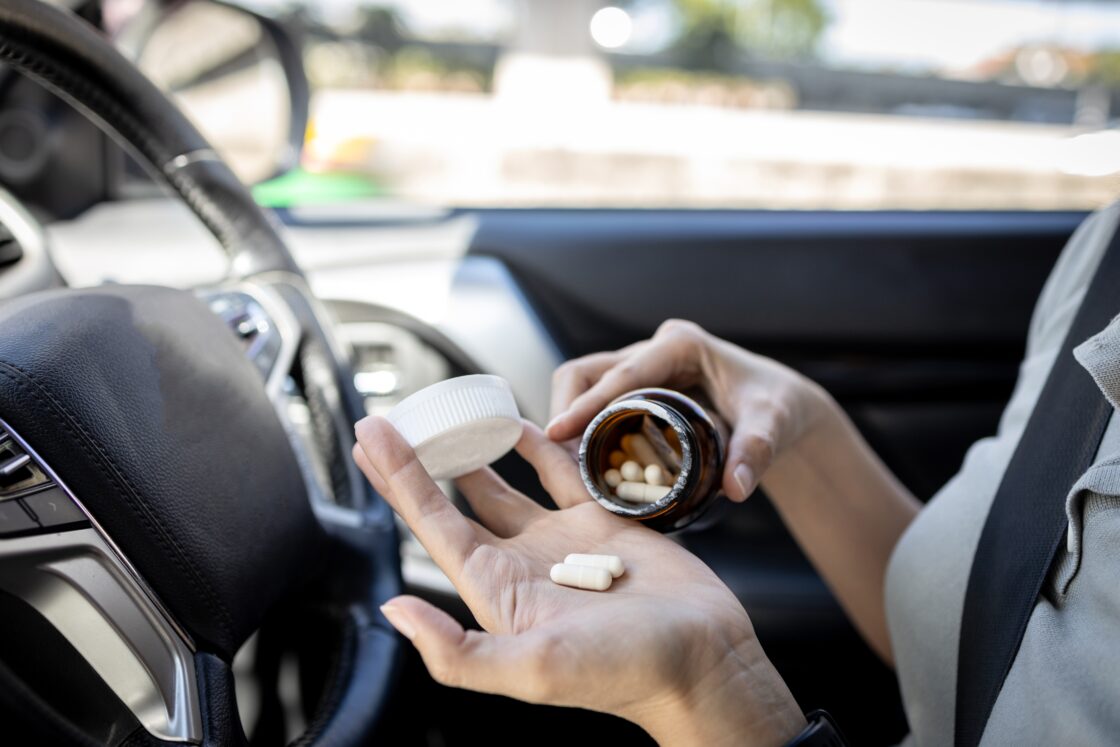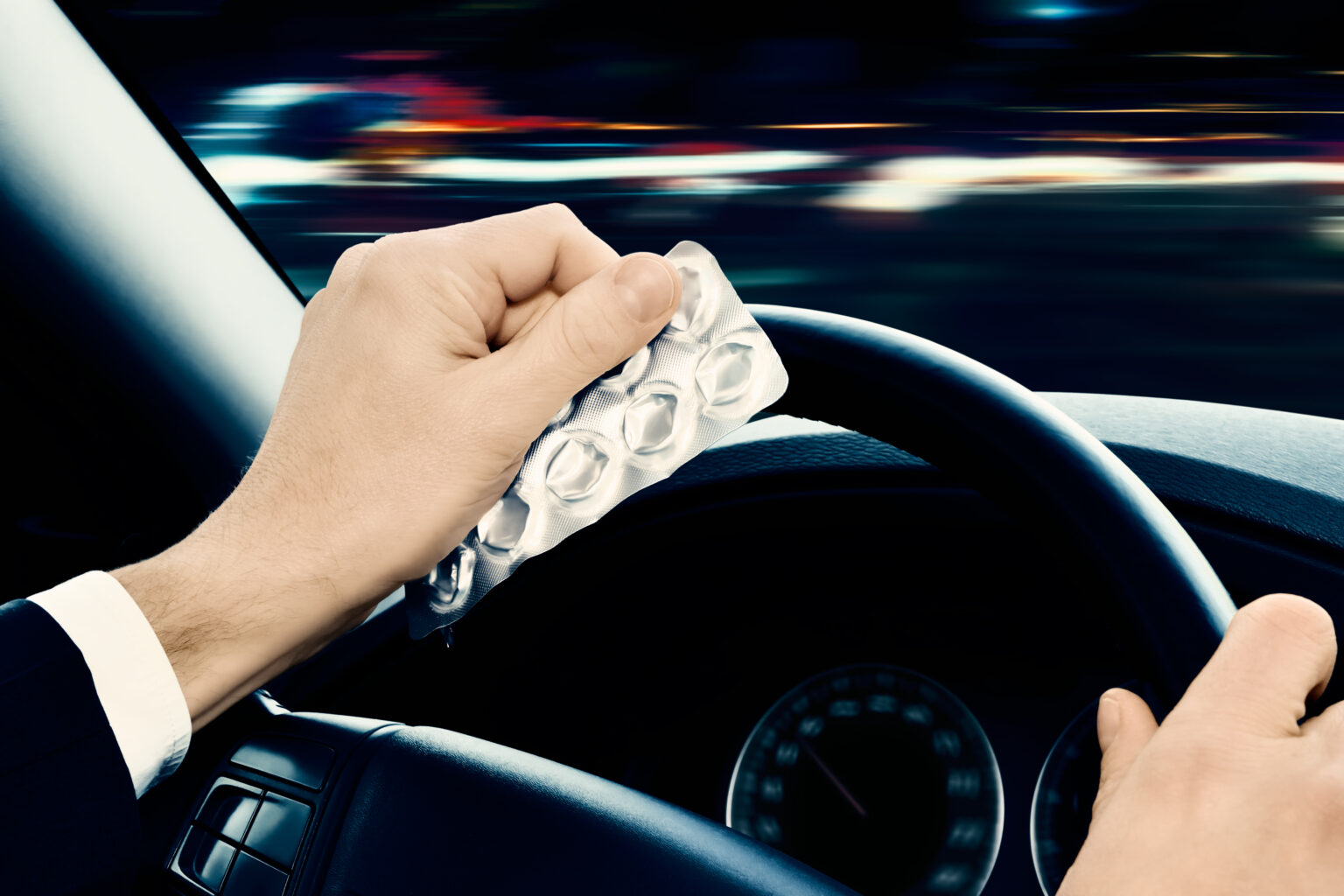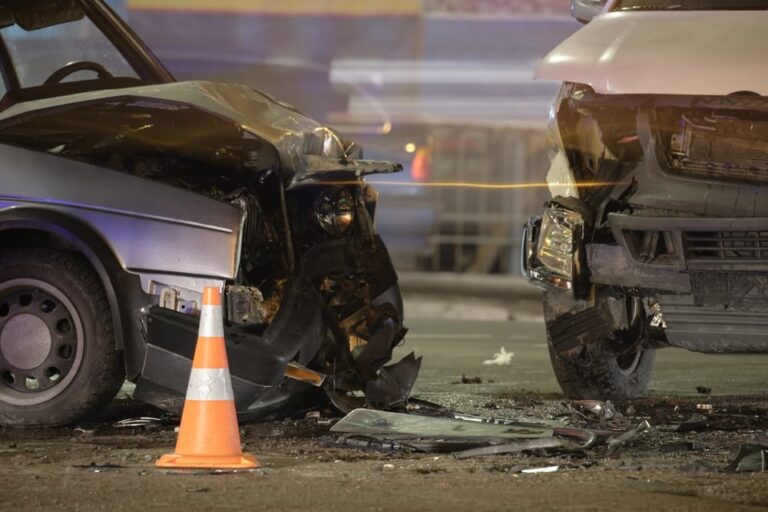Navigating the busy streets of Chicago, from the bustling Kennedy Expressway to the scenic curves of Lake Shore Drive, comes with challenges. Unfortunately, one of the most serious dangers drivers face is sharing the road with individuals who are operating a vehicle under the influence of drugs.
The reality is that drug-impaired driving in Chicago is a significant and growing problem, leaving a trail of devastation for many innocent people. When a person chooses to get behind the wheel while impaired, they are not just breaking the law; they are creating a risk that can change lives in an instant.
It is one thing to hear about drugged driving on the news and another entirely to have your life disrupted by it. For anyone trying to pick up the pieces after a collision, the questions about what to do next can feel relentless.
Shining a light on the scope of this problem and the steps that follow can help bring a measure of clarity to a deeply confusing situation. Speaking with a distracted driving accident attorney in Chicago can be an important first step toward understanding your rights and legal options.
The Alarming Reality of Drug-Impaired Driving in Chicago
Seeing the statistics on drugged driving can be startling. Across Illinois, law enforcement and safety officials are seeing a noticeable trend of accidents caused by drivers under the influence of various substances.

Unlike alcohol, which has a clear legal limit, drug impairment can be more complex to identify and prosecute, yet it is just as dangerous. The Illinois Department of Transportation (IDOT) regularly releases data that sheds light on this issue.
While exact city-wide numbers for Chicago can be woven into county and state totals, the statewide trends point to a serious concern for anyone driving within the city limits.
- Cannabis and Driving: Since the legalization of recreational cannabis in Illinois, there has been a heightened awareness and concern about its impact on road safety. A driver’s ability to judge distance and react to sudden hazards, like a pedestrian stepping into a crosswalk in the Loop, can be significantly reduced.
- Prescription and Illicit Drugs: The problem extends far beyond cannabis. Opioids, sedatives, and even some over-the-counter medications can cause drowsiness, dizziness, and blurred vision, making driving extremely unsafe.
- Polydrug Use: A particularly dangerous situation involves “polydrug use.” This is a term for when a driver has multiple types of drugs, or a combination of drugs and alcohol, in their system. The combined effects can be unpredictable and severely magnify impairment.
Illinois Law and Drug-Impaired Driving in Chicago
Illinois law is very clear when it comes to driving under the influence of drugs. The state has what is known as a “zero tolerance” policy for many substances. This means that if a driver has any amount of a controlled substance in their system, they can be charged with driving under the influence (DUI).
This is different from an alcohol-based DUI, where a specific Blood Alcohol Concentration (BAC) level of .08% is the legal threshold. For victims of a crash, this legal framework is a key part of establishing what happened. When you are back home after an accident, trying to piece everything together, the other driver’s actions are a central focus.

- Implied Consent: Illinois operates under an “implied consent” law. This law means that by having a driver’s license, a person automatically agrees to submit to chemical testing (like a blood or urine test) if they are arrested for a DUI. Refusing this test has its own legal consequences for the driver.
- Proving Impairment: For a civil claim, which is separate from the driver’s criminal case, the focus is on showing the driver was negligent. Negligence is a legal term that means someone failed to act with reasonable care, and this failure caused harm to another person. Evidence of drug use, such as a police report or a failed drug test, can be powerful in demonstrating this lack of care.
- Legal vs. Illegal Drugs: A common question is about prescription medication. Even if a drug is prescribed by a doctor and taken as directed, a person can still be held responsible if that medication impairs their ability to drive safely and they cause an accident. The warning labels on many prescription bottles often advise against operating heavy machinery for this exact reason.
The Consequences for Victims of Drug-Impaired Driving in Chicago
The moments after a car accident are often a blur of confusion, fear, and pain. Once you are home and the initial shock begins to wear off, the true impact of the collision starts to set in.
The consequences of being hit by a drug-impaired driver are not just about a damaged vehicle; they ripple through every aspect of your life. The physical injuries can be severe and long-lasting. Even a seemingly minor crash in a Wicker Park intersection can lead to significant health issues.
- Traumatic Brain Injuries (TBIs): These can range from mild concussions to severe injuries that affect cognitive function, memory, and personality.
- Spinal Cord Injuries: Damage to the spinal cord can result in partial or full paralysis, completely altering a person’s life and ability to work or care for their family.
- Broken Bones and Internal Damage: The force of a collision can easily cause fractures, organ damage, and internal bleeding, requiring extensive surgery and a long recovery period.
Beyond the physical pain, the emotional and financial toll can be overwhelming. You may be unable to work, leading to lost wages and financial stress. The emotional trauma of the event can lead to anxiety, depression, and a fear of driving. These are real, tangible damages that are a direct result of the other driver’s decision to drive impaired.
What to Do After an Accident with a Drugged Driver
Once you are safely back home and have addressed your immediate medical needs, the process of recovery begins. Exasperation is an entirely normal feeling at this time.
Small, manageable steps can help you feel more in control of the situation. Keeping organized is a helpful way to manage the stress of the aftermath.
Start a dedicated folder or digital file to keep all accident-related documents together.
This simple step can make a big difference as you navigate the days and weeks ahead.
- Document Your Injuries and Medical Care: Keep a record of every doctor’s visit, therapy session, and medical bill. It is also helpful to keep a simple journal detailing your pain levels, physical limitations, and how the injuries are affecting your daily life.
- Track All Expenses: The costs from an accident add up quickly. Maintain a list of all related expenses, including prescription costs, transportation to medical appointments, and any other out-of-pocket costs. If you are missing work, keep detailed records of your lost wages.
- Preserve Evidence from the Scene: You may have photos or videos of the accident scene, vehicle, and injuries. Make sure these are saved in a secure place. Also, save the contact information for any witnesses and a copy of the police report as soon as it becomes available.
Navigating Insurance Claims Involving Drug-Impaired Driving in Chicago
Dealing with insurance companies can be complicated, and it becomes even more so when drug impairment is a factor.
The at-fault driver’s insurance company may try to minimize the payout or dispute the extent of your injuries. They protect their financial interests. You can pursue a claim for your damages regardless of the outcome of their criminal case.
- Types of Compensation: In a personal injury claim, you may be able to seek compensation for various damages. This is often referred to as making you “whole” again, at least from a financial standpoint. These damages can include medical expenses, future medical treatment, lost income, and pain and suffering.
- The Role of a Police Report: The official police report is a key piece of documentation. It will contain the officer’s observations about the other driver, details of any field sobriety tests, and whether a DUI arrest was made. This report can serve as strong evidence in your claim.
- Communicating with Insurers: Be cautious in your communications with the other driver’s insurance adjuster. They may ask for a recorded statement or try to get you to settle quickly for a low amount.
You are not obligated to provide a recorded statement, and it is often wise to understand the full extent of your injuries and financial losses before considering any settlement offer.
Illuminating Your Path Forward

Being injured in an accident caused by a drug-impaired driver is a deeply unfair and distressing experience. The path to recovery can feel long and uncertain, but you do not have to walk it alone.
The legal system provides a way for you to hold the responsible party accountable and seek the resources you need to rebuild. At Walner Law, we understand the immense physical, emotional, and financial burdens that our clients face after a serious accident.
As an experienced Chicago personal injury lawyer, we provide compassionate guidance and dedicated advocacy. If you or a loved one has been affected by drug-impaired driving in Chicago, we can help you understand your options. You can reach out to our Chicago office at (312) 410-8496 for a conversation about your situation.
Your Questions Answered About Drug-Impaired Driving Accidents
Q: What if the driver who hit me wasn’t convicted of a DUI? Can I still have a case?
A: Yes, absolutely. A criminal case and a civil personal injury claim are two separate things. A criminal case requires proof “beyond a reasonable doubt,” which is a very high standard. For your civil claim, the standard is a “preponderance of the evidence,” which simply means it is more likely than not that the other driver’s negligence caused your injuries. Evidence of drug use can still be used to prove negligence even without a criminal conviction.
Q: The other driver was taking prescription medication legally. Does that matter?
A: While they may have been taking the medication legally, it does not give them a pass for driving negligently. If the medication is known to cause impairment and they chose to drive anyway, they can still be held liable for the harm they caused. The focus is on whether their driving ability was impaired, not whether the drug was legal.
Q: How long do I have to file a personal injury claim in Illinois?
A: In Illinois, there is a law called the Statute of Limitations, which sets a time limit for filing a lawsuit. For most personal injury cases, including those from car accidents, the deadline is two years from the date of the injury. This is a strict deadline, so exploring your legal options well before it approaches is beneficial.


 Skip to content
Skip to content




